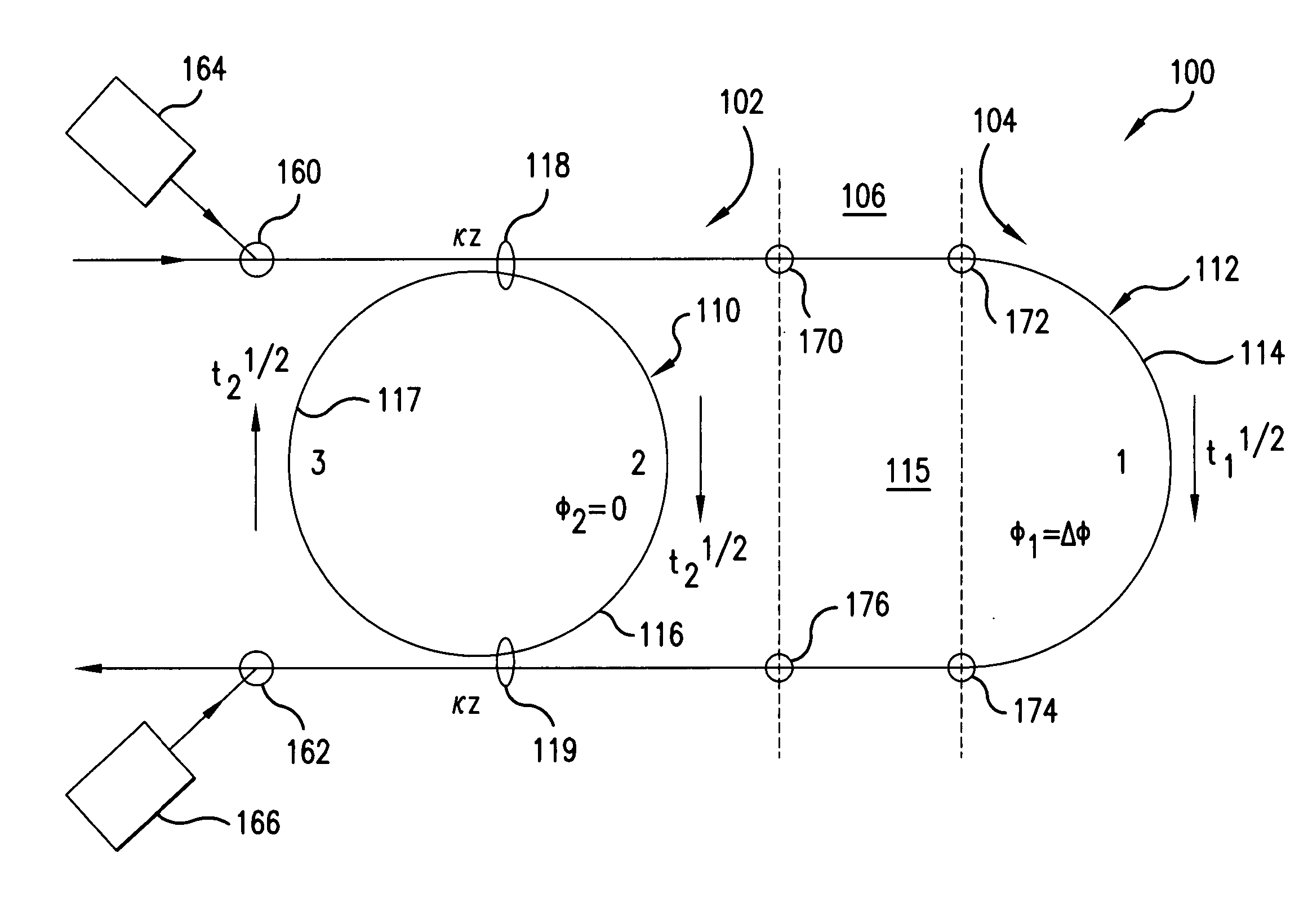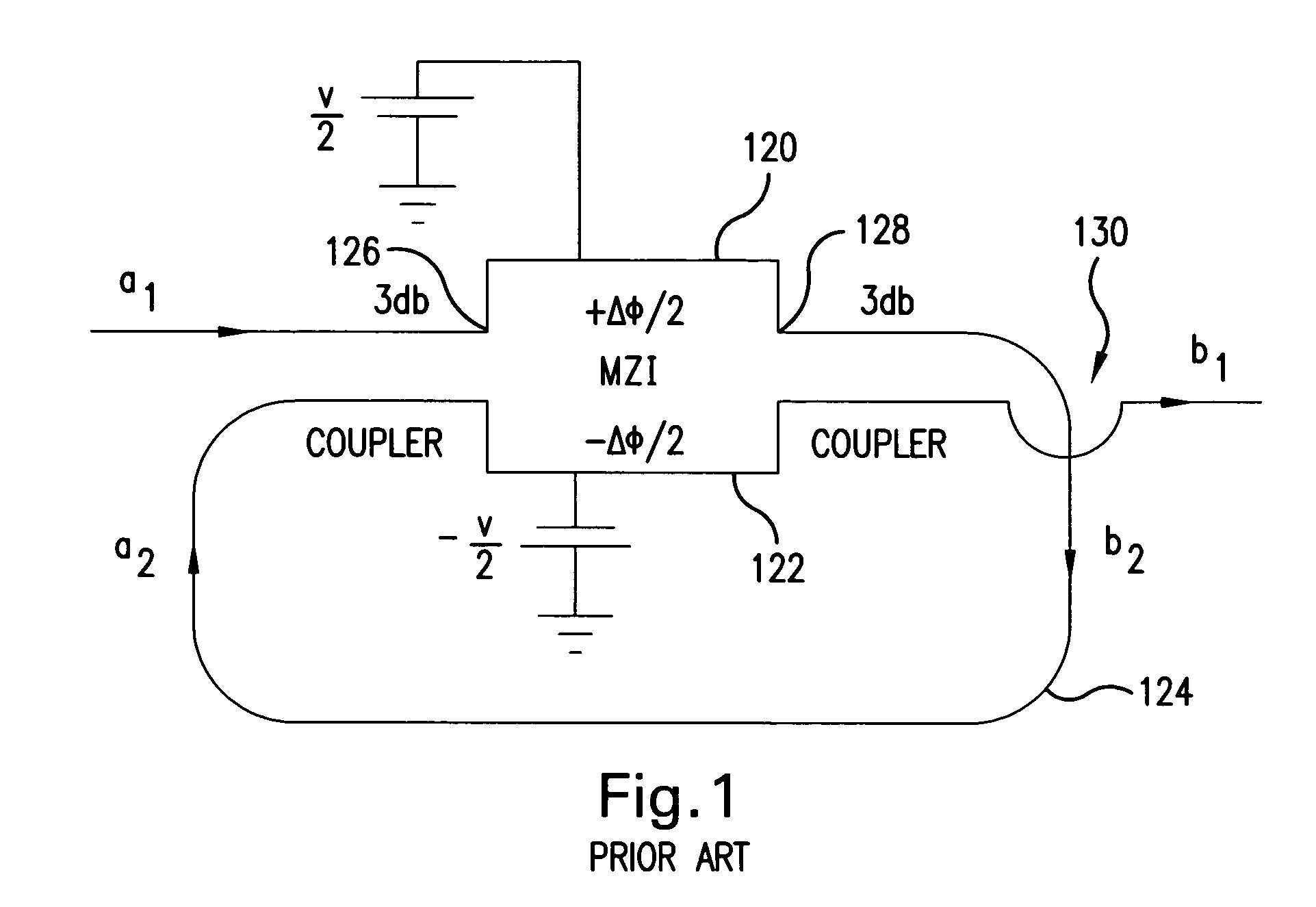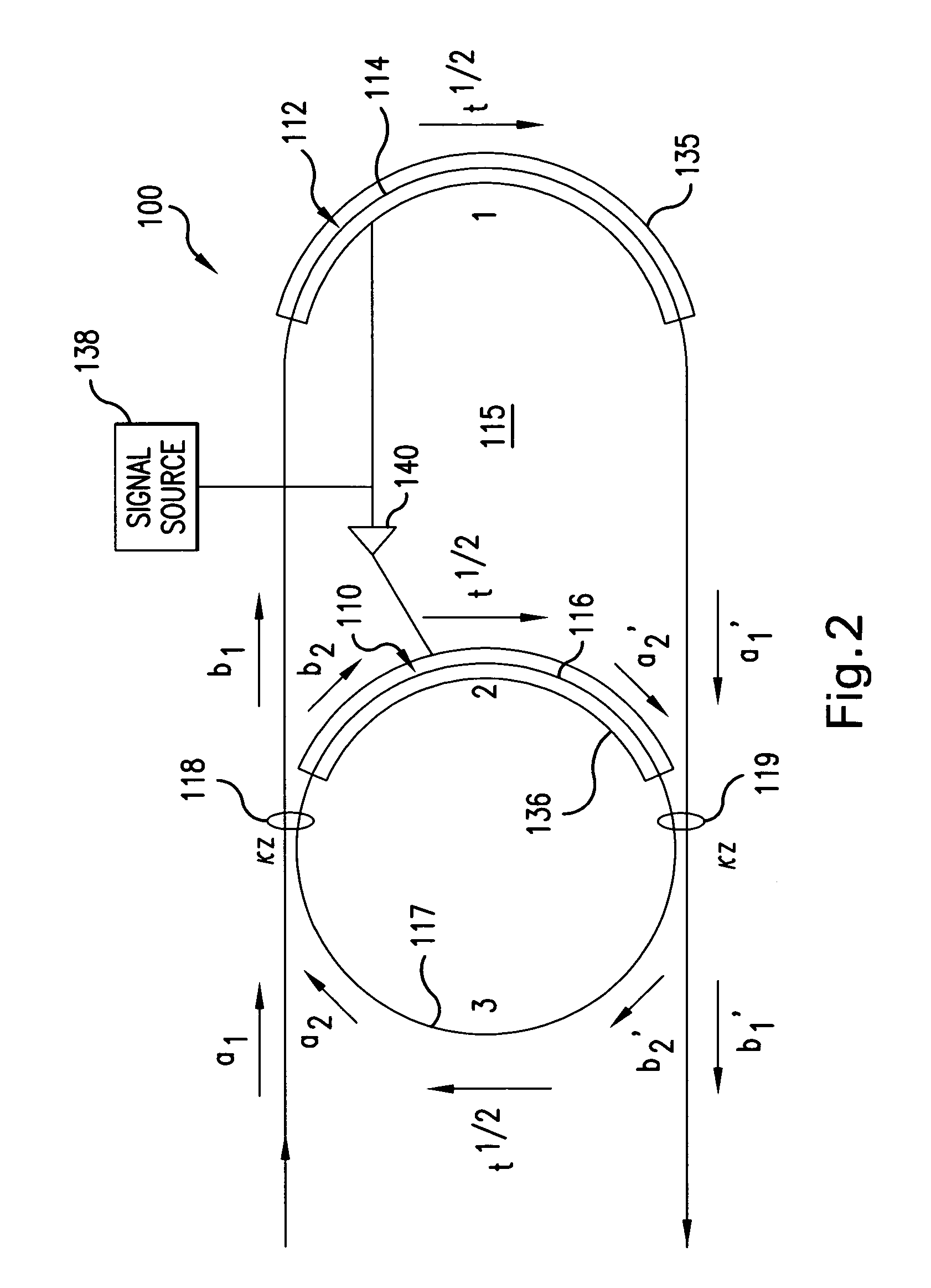High gain resonant modulator system and method
a resonant modulator and high gain technology, applied in the field of high gain resonant modulator system and method, can solve the problems of inability to optimize analog applications, inability to manufacture hybrids, and inability to meet the requirements of high-gain resonant modulators, so as to improve the slope efficiency, improve the operation, and increase the analog link gain
- Summary
- Abstract
- Description
- Claims
- Application Information
AI Technical Summary
Benefits of technology
Problems solved by technology
Method used
Image
Examples
Embodiment Construction
[0031] In general, for an arbitrary MZI, the total MZI phase shift Δφt, which is the phase difference between the arms of the interferometer, can be defined as:
Δφt=φ1−(−φ2)=sΔφt+(1−s)Δφt (1) [0032] where φ1 and −φ2 are the phase changes in arms 1 and 2, respectively, and s is a parameter describing the asymmetry of the MZI. In general, 0≦s≦1. For the arrangement shown in FIG. 1, eq.1 is satisfied by s=½.
[0033] For this arrangement, 3 dB couplers 126 and 128 divide the optical power of a single input in half. Stated in another way, κz is constrained to 45 deg, where κ is the coupling coefficient in the directional coupler and z is its length. It can be shown that these are the only conditions under which critical coupling, where the power output is 0, can be obtained for all values of Δφ, independent of κz.
[0034]FIG. 2 illustrates an optical resonant modulator, which has been constructed according to the principals of the present invention.
[0035] The optical resonant modulator 1...
PUM
 Login to View More
Login to View More Abstract
Description
Claims
Application Information
 Login to View More
Login to View More - R&D
- Intellectual Property
- Life Sciences
- Materials
- Tech Scout
- Unparalleled Data Quality
- Higher Quality Content
- 60% Fewer Hallucinations
Browse by: Latest US Patents, China's latest patents, Technical Efficacy Thesaurus, Application Domain, Technology Topic, Popular Technical Reports.
© 2025 PatSnap. All rights reserved.Legal|Privacy policy|Modern Slavery Act Transparency Statement|Sitemap|About US| Contact US: help@patsnap.com



